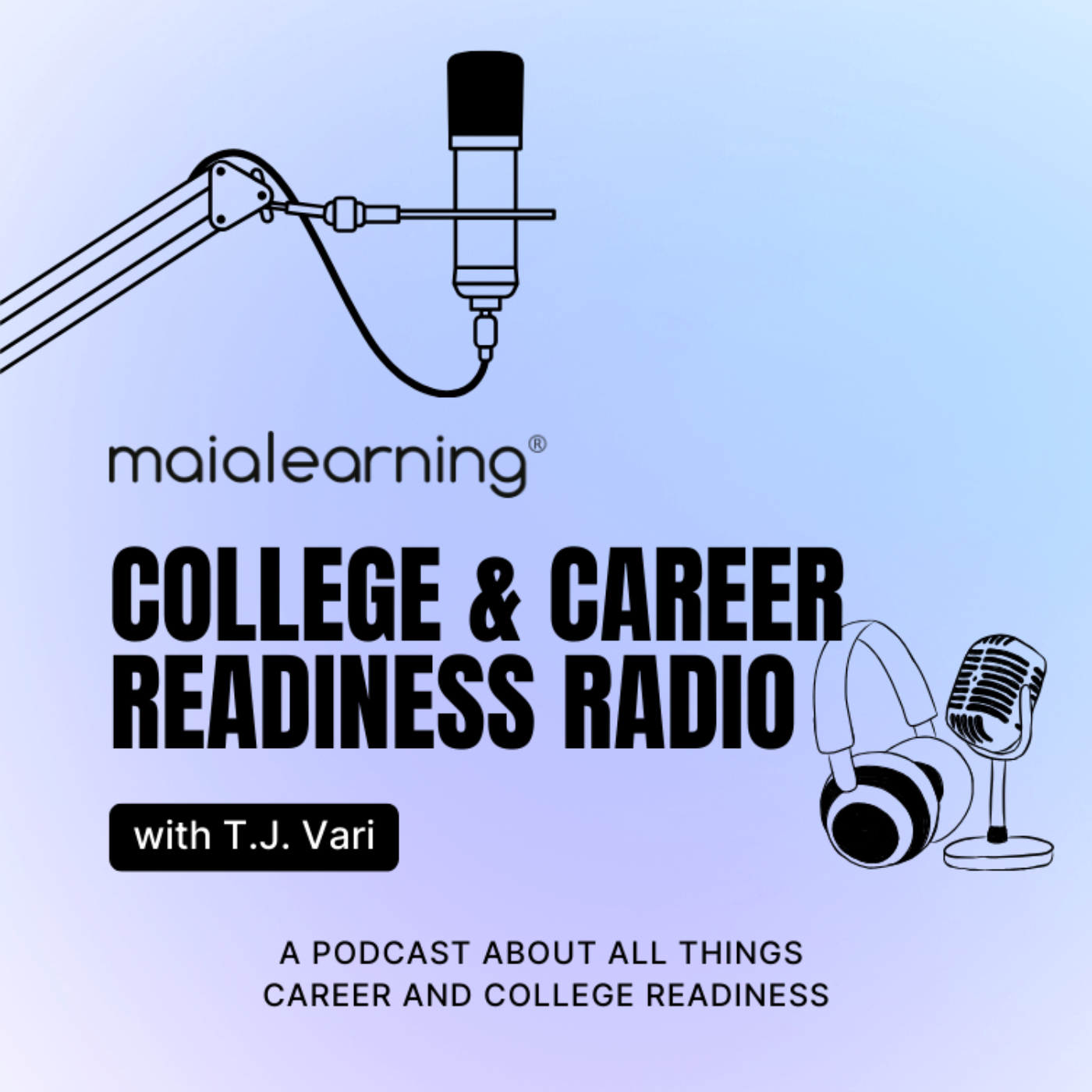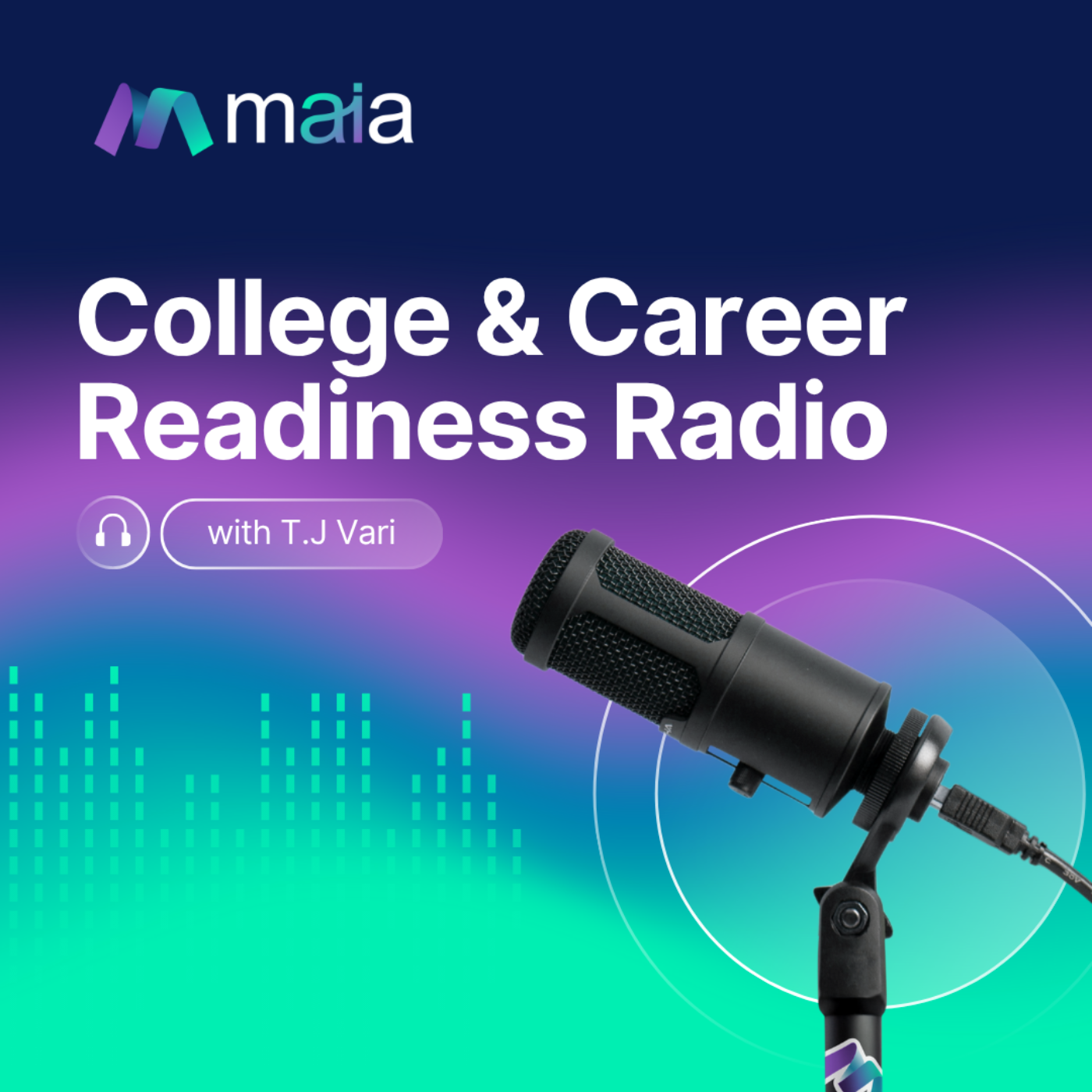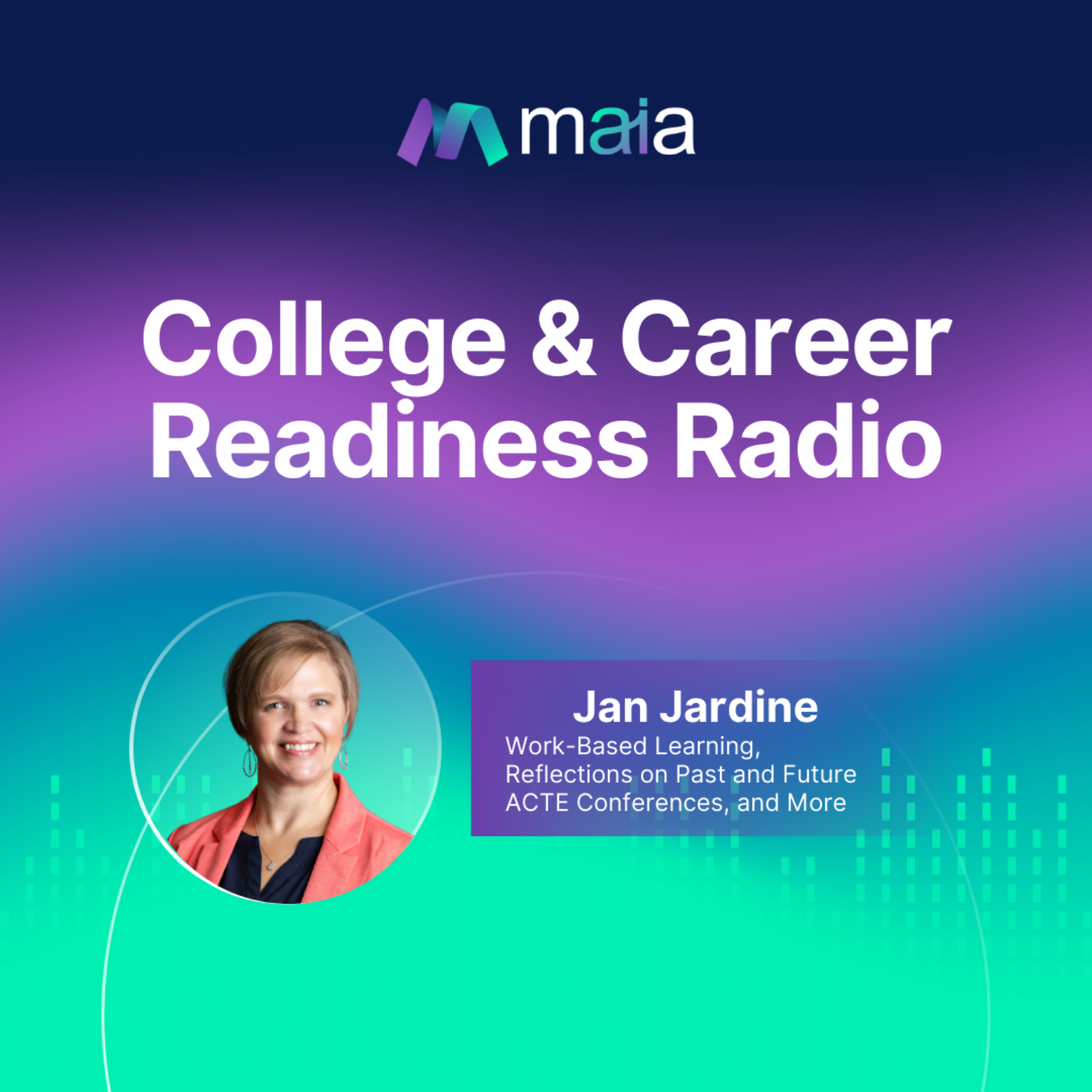College & Career Readiness Radio

College & Career Readiness Radio
Podcast Description
College & Career Readiness Radio with T.J. VariA podcast about all things career and college readiness. Brought to you by MaiaLearning.
Podcast Insights
Content Themes
The podcast focuses on various aspects of college and career readiness, including financial aid strategies like FAFSA completion, effective technology integration in education, the importance of postsecondary frameworks, and essential executive functioning skills. Episodes delve into practical insights, such as the role of school counselors in facilitating access to college, innovative career counseling programs, and the evolving landscape of technology usage in schools.

College & Career Readiness Radio with T.J. Vari
A podcast about all things career and college readiness. Brought to you by MaiaLearning.
Our guest for this episode of College & Career Readiness Radio is Jan Jardine.
Jan Jardine explains how work-based learning helps students connect classroom learning with real-world careers through internships, apprenticeships, and CAPS-style industry projects, often revealing both what students love and what is not a good fit before they invest in postsecondary education.
She describes how CAPS programs “bring industry to students” by embedding them in professional environments where they work in teams on authentic client projects, practicing skills like communication, project management, and handling iterative feedback instead of just observing adults at work.
She emphasizes the importance of starting career-connected learning earlier, moving beyond a 9–12 or “just CTE” model by integrating projects and industry connections into middle school courses like College and Career Awareness and even elementary-level career exploration, so students do not “meander” through pathways without direction.
Jan also pushes for breaking down silos between core academics and CTE, sharing examples of engineering students who independently applied calculus to design a moving staircase prototype, illustrating how interdisciplinary, project-based work makes academic content meaningful.
For rural and under-resourced communities, Jan urges educators to treat the school system itself as an industry partner—leveraging child nutrition, IT, transportation, HR, and other internal departments, as well as nearby community colleges, to create rich work-based learning experiences even where external employers are scarce.
She reflects on the 2025 ACTE CareerTech Vision conference (in New Orleans this year), noting growing national momentum: more conference sessions on rural innovation, younger grades, and postsecondary collaboration.
Jan highlights the upcoming National Work-Based Learning Conference in Rhode Island (April 29–May 1), where sessions will range from foundations for new coordinators to advanced topics for experienced leaders looking to “level up” their programs, with special attention to business partner engagement and rural models.
She also shares details about the ACTE-sponsored Leadership Alliance for Work-Based Learning, a new cohort for 10 practitioners that includes in-person learning at the conference, five virtual sessions, and a capstone project to be presented at the 2027 conference, designed to help leaders tackle real challenges in their own contexts.
Her call to action for educators is simple but powerful: share your story—do not assume your work is “no big deal,” because when you consistently tell students’ success stories, communities, industry partners, and policymakers better understand the impact and begin to advocate for and invest in this work.

Disclaimer
This podcast’s information is provided for general reference and was obtained from publicly accessible sources. The Podcast Collaborative neither produces nor verifies the content, accuracy, or suitability of this podcast. Views and opinions belong solely to the podcast creators and guests.
For a complete disclaimer, please see our Full Disclaimer on the archive page. The Podcast Collaborative bears no responsibility for the podcast’s themes, language, or overall content. Listener discretion is advised. Read our Terms of Use and Privacy Policy for more details.